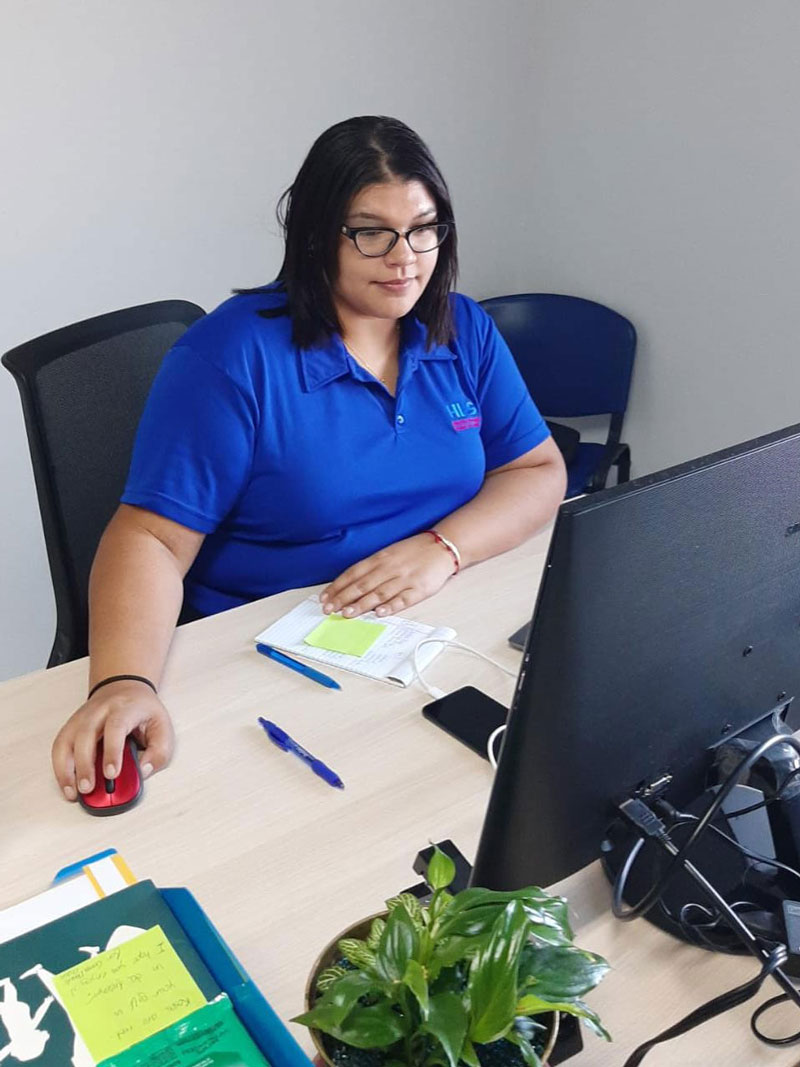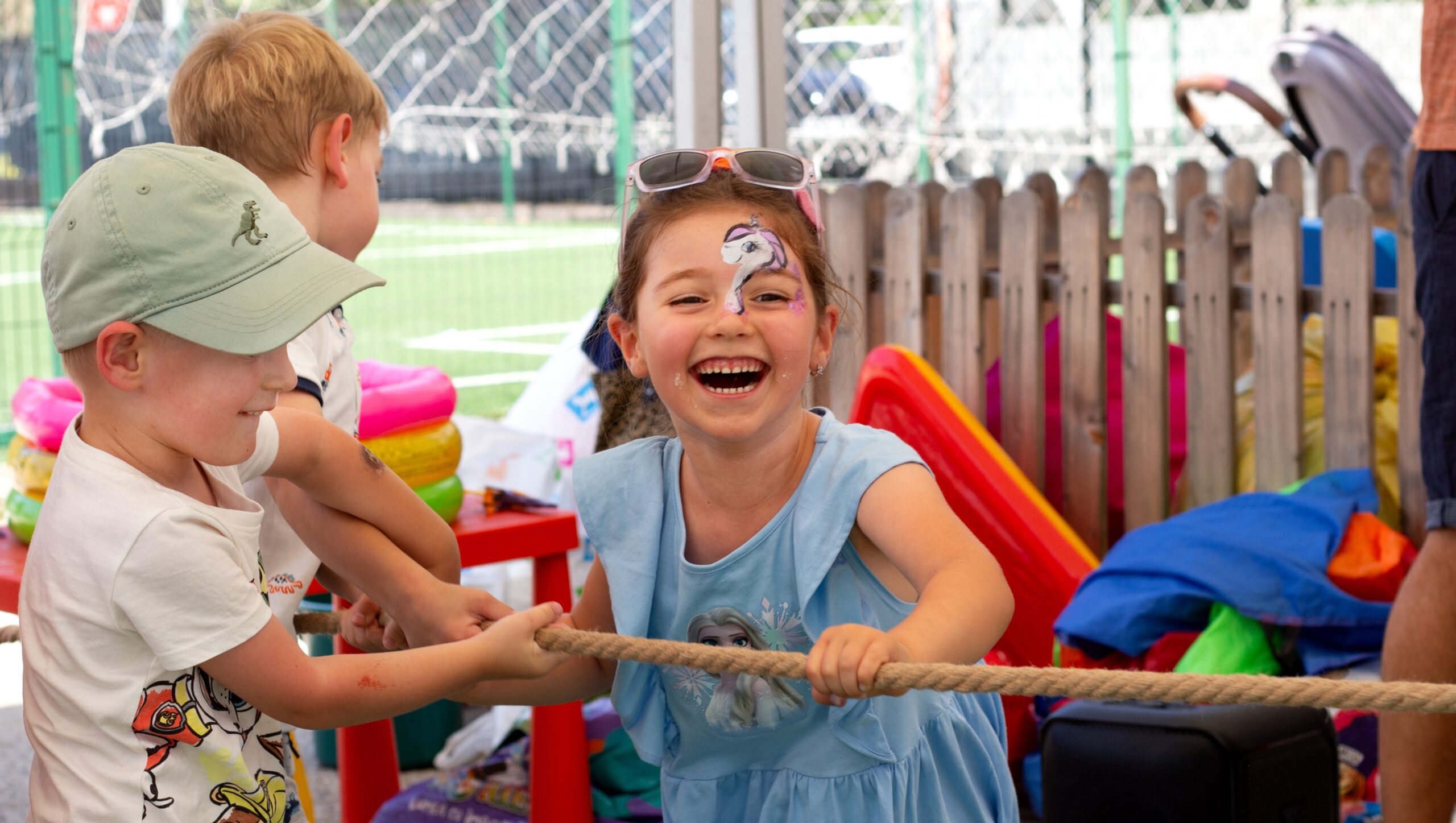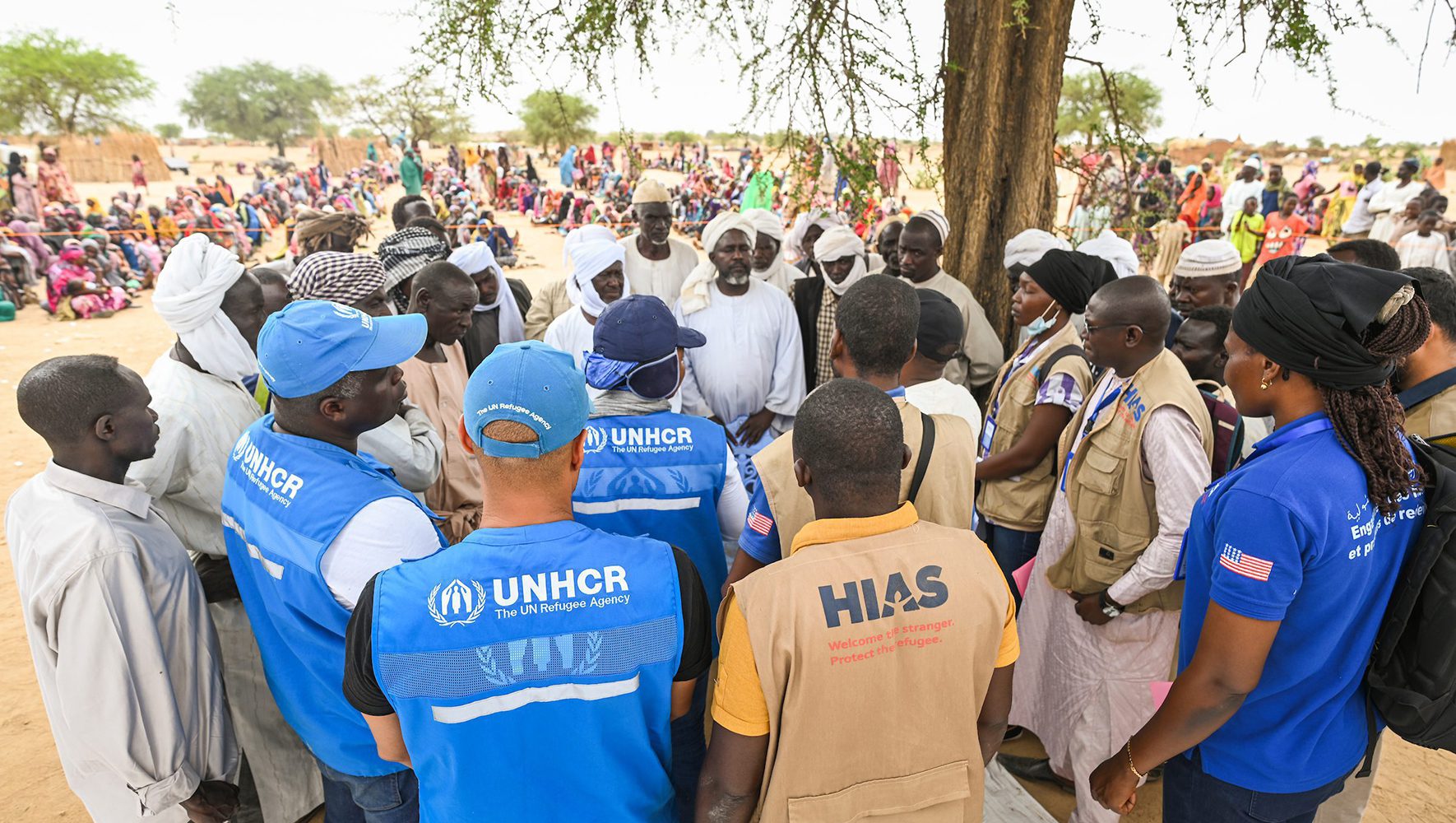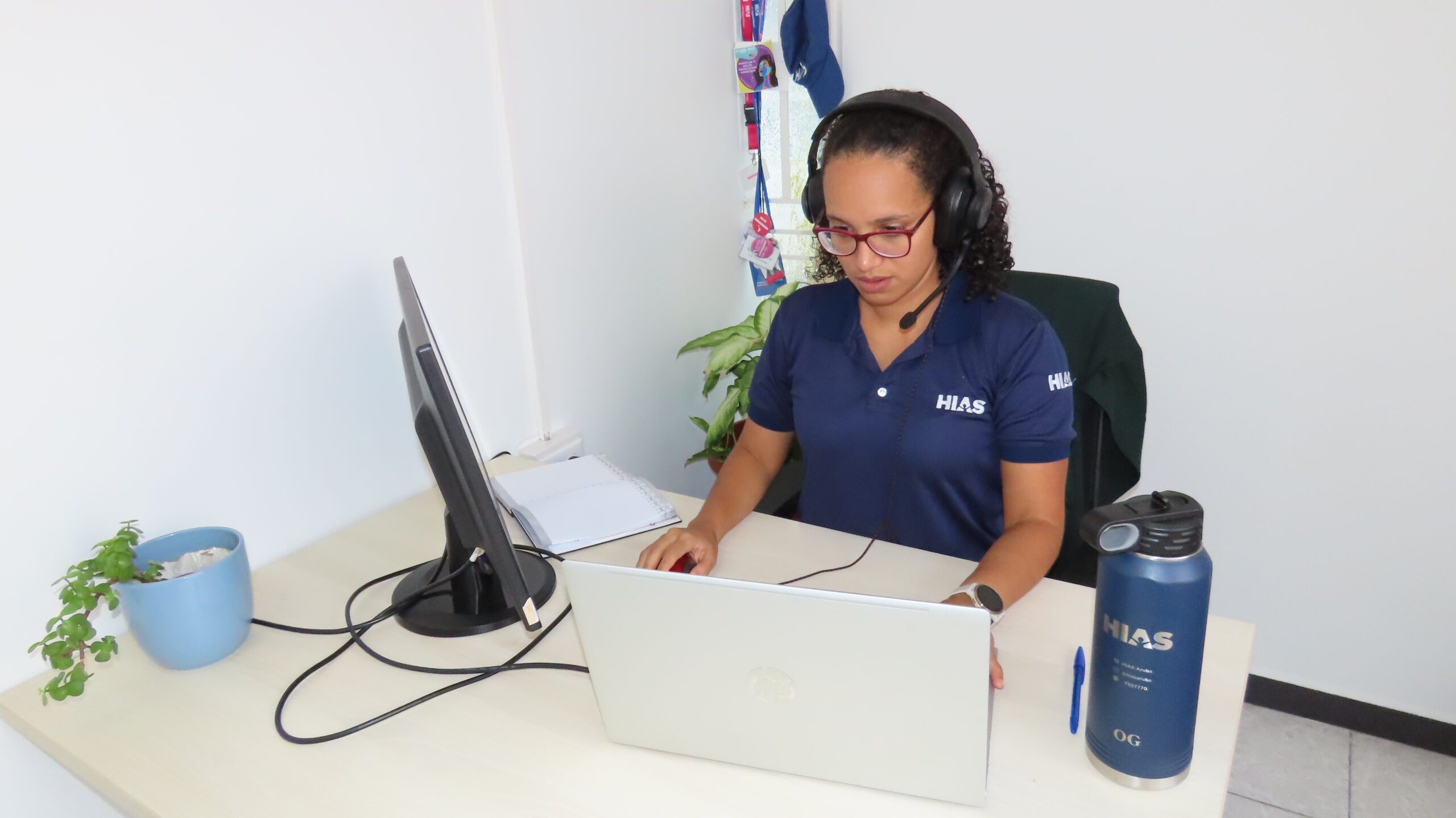Voices from Aruba: HIAS, Clients Work Together Through Pandemic
By Sharon Samber, HIAS.org
Dec 14, 2020

Genna Maduro, HIAS Aruba's assistant protection officer, keeps in touch with clients remotely for now.
(HIAS Aruba)
On clear days, it is possible to see Venezuela — only 16 miles away — from the southeastern side of Aruba.
Thousands of Venezuelans have migrated to the island in the last few years because of the socioeconomic and political turmoil in their home country. Aruba, with a population of just over 110,000, now hosts approximately 17,000 of the 4.5 million who have fled Venezuela. They have experienced myriad challenges, including xenophobia. They are often voiceless.
In response to the refugee situation in Aruba, HIAS established an office on the island in 2019 to help Venezuelan refugees recover from trauma and to deal with the stresses of living without legal status and in fear of detention and deportation from the island. HIAS Aruba focuses on the prevention of and response to gender-based violence, with programs to help women and girls who are subject to sexual assault and human trafficking and also provides financial literacy courses, language courses, and works to strengthen networks of community-based protection.
“In only 18 months HIAS Aruba has become a leading actor in the humanitarian field,” says Yiftach Millo, HIAS Aruba’s country director. He reflected on the quick growth of HIAS Aruba, which started out with a staff of two and has now grown to 14, and all of the recent changes the small island nation has undergone. “HIAS is working to expand the access to protection and advocate for greater access to rights, but Aruba needs the support of the international community in order to provide an adequate response.”
The impact of COVID-19 has led to the imposition of curfews, travel restrictions, and social distancing rules, all of which have drastically changed life for Arubans, Venezuelan asylum seekers and migrants, and other migrants from the rest of Latin America and the Carribean. Many work in the hotel and tourism industries, which have been significantly affected by the pandemic, and now people are deprived of the income they used to support themselves and their families back home.
“A crisis can be a great opportunity for change and improvement,” Millo said. “I do think that despite the negative impact of the COVID-19 pandemic on the Aruban economy, this type of shock is also an engine for change and innovation in terms of delivery and efficiency of services, and the inclusion of all affected, including refugees, asylum seekers, and migrants.”
Some Venezuelans have gone back to their home country recently, but most have chosen to stay in Aruba. The following three stories illustrate what their lives are now like — and the resilience they have shown during the pandemic:
Juan (HIAS client):
I am an asylum seeker. I am a 29-year-old father who migrated to Aruba in 2019. Before the COVID-19 pandemic I used to work in the irregular labor sector in order to provide for my family in my home country. I lost my job during the pandemic and I could not move around and look for another job because of restrictions and the lockdown. I thought I would get evicted during a lockdown. I had trouble getting enough food and I realized I could not provide for my family in Venezuela.
The pandemic not only affected me financially, but also mentally. But I never lost faith that soon my situation would change. I needed help for many things and I asked for help from HIAS. I received both counseling support and assistance to cover my basic needs. Today, I still have challenges, but I am working again.
Tony* (HIAS client)
I identify as transgender. I came to Aruba in 2015. Prior to the pandemic I used to work as a chef in a restaurant. I was a victim of gender-based violence during the pandemic and had to escape for safety. I didn’t have the money to pay for an apartment so I stayed on friends’ couches. Despite my experience I remain optimistic. I like to say when you act positive, doors open for you. If it were not for my friends, HIAS Aruba, and Red Cross Aruba, I wouldn’t know where I would be now. Today I’m working again, I have my own little apartment, and I feel physically and emotionally healthy.
Genna (HIAS staff member)
I want to help as many people as possible, but I fear getting infected by the virus and transmitting it to those most vulnerable around me. As a social worker/humanitarian worker this experience has taught me — and is still teaching me — to manage my expectations. We cannot do everything, but sometimes we forget that something like a moment of laughter is more than enough in that moment in time. Sometimes the pandemic situation can even create a beautiful opportunity for collaboration with [aid agencies like] Red Cross Aruba, Fundacion Pa Nos Comunidad, and Ayudo Pa Aruba.
As protection officers, we are continuously exposed to people’s traumas and adversities and sometimes it can take a toll on you. During this period it was important for me to take care of myself, because at the end of the day no one can pour from an empty cup.
Today, as I put on my HIAS uniform, I am grateful that our team is striving to assist our beneficiaries with even more drive, passion, and determination despite the changes that COVID-19 brought in our world. Now more than ever it is important for us to advocate for the basic human rights of our refugees and asylum seekers in our communities. We must support our beneficiaries in using their voice for an environment in which they can be heard, because to have a voice is to have power.
*Pseudonyms used for clients’ safety.



